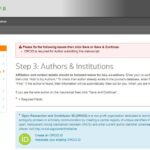Featuring top tips for maintaining accuracy and integrity in scientific reporting, the need to share algorithmic inputs of scientific models, efforts to streamline and improve time-to-publication metrics and peer review processes, Evidence Aid’s work on coronavirus research summaries and CRUK’s commitment to Plan S.
Maintaining journalistic integrity in the era of preprint servers via Columbia Journalism Review
Preprint servers are accelerating science at unprecedented speeds, especially in response to the COVID-19 pandemic. However, there have been concerns that the rapid dissemination of articles not subject to formal peer review may pose a risk to the integrity of scientific journalism as journalists with limited scientific training may be tempted to make interpretations or claims based on unverified data. In this op-ed, Ivan Oransky, co-founder of Retraction Watch and Vice President, Editorial, at Medscape, uncovers his top tips for science journalists on accurately reporting medical research.
Barton et al. 2020: transparent science is about sharing methods as well as results via Science
The authors of this letter argue that it is not enough to only share the results and outputs of scientific models in research, but that the model itself, including code, input parameters and algorithms, must also be shared in public repositories that adhere to the FAIR principles of data sharing. Barton and colleagues maintain that transparency is the best tool we have for tackling misinformation and that there is no place for proprietary confidentiality during a global crisis.
Peer review: streamlining the process via Scholastica HQ
Time to publication is, now more than ever, a key journal metric to consider during publication planning. This metric can be improved through streamlining the peer review bottleneck by: ensuring policies and procedures are well documented and accessible, optimizing technical and formatting checks, communicating editorial priorities and avoiding reviewer burnout by limiting the scope of the review.
Peer review: improving the infrastructure via The Publication Plan
As discussed in a paper recently published in Nature, systematic research into peer review processes is somewhat scarce and requires advanced collaboration and infrastructure. The article, which was written by members of PEERE, an action group established to “improve efficiency, transparency and accountability of peer review”, outlines the difficulties of and potential solutions for progressing peer review processes and infrastructure.
Evidence Aid reaches 200 coronavirus-related summaries via Evidence Aid
First established in response to the 2004 Boxing Day Tsunami, Evidence Aid is a UK-based charity that compiles and distributes summaries of evidence-based practices and research to inform effective humanitarian aid and political decision-making. More recently, Evidence Aid has been heavily involved in collating and translating coronavirus-related research and has now published a staggering total of 200 summaries of coronavirus-related research.
CRUK joins Plan S via Cancer Research UK
Highlighting its commitment to open science, Cancer Research UK (CRUK) is the latest organization to join the list of Plan S supporters. The adoption of an immediate open access policy, which comes into full effect in January 2022, involves updating the organization’s open access policy, reviewing its partnership with Wellcome’s Charity Open Access Fund and liaising with Springer Nature, which is responsible for publishing the CRUK-owned British Journal of Cancer.
We at Open Pharma would like to continue to encourage all our readers to look after themselves and their community and continue to follow advice from their country’s government and health organizations.
Coronavirus mental health and wellbeing resources:






